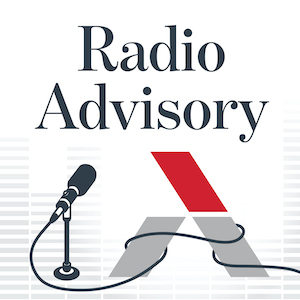Auto logout in seconds.
Continue LogoutWriting for Kaiser Health News, Aneri Pattani tells the story of Travis Warner and his wife getting tested for Covid-19. After one of his employees tested positive in June 2020, Warner and his wife went to a freestanding ED for testing. Then, Warner saw his bill—it came to $56,384.
Radio Advisory: The biggest transparency and surprise billing policies coming your way
$56K for Covid-19 tests
When Warner and his wife were seeking a Covid-19 test, availability was limited. Ultimately, they drove 30 minutes from their Dallas home to SignatureCare Emergency Center in Lewisville, Texas. There, they each received a diagnostic PCR Covid-19 test and a rapid antigen test, all of which eventually came back negative.
Warner's $56,384 bill included $54,000 for the Covid-19 tests plus an ED facility fee. Warner's insurer, Molina Healthcare, negotiated the bill down to $16,915.20, which Molina paid in full. Warner's wife, under a separate insurance policy, was billed $2,000, which her insurer ultimately settled for less than $1,000.
And although Warner's charges were fully covered by insurance, when he saw the bill, he decided to call Molina to see if someone could explain why the tests had been so expensive, Pattani reports. After several calls to Molina, SignatureCare, and SignatureCare's billing firm—and months of waiting—Warner received a letter from his insurer saying they had audited Warner's claim and taken back the money paid to the ED.
A spokesperson for Molina Healthcare said the bill "was a provider billing error which Molina identified and corrected."
SignatureCare said it wouldn't comment on a specific patient's bill, but said in a statement that its billing error rate is less than 2% and that it has a "robust audit process" to find errors. The company's website now lists Covid-19 tests as costing $175, Pattani reports.
'People are going to charge what they think they can get away with'
At the start of the pandemic, lawmakers were concerned people would avoid getting a Covid-19 test because of the cost, which is why Congress required insurers to pay for those tests without any patient cost-sharing, Pattani reports.
For providers who are in-network, insurers can negotiate test prices. But for out-of-network providers, insurers are required to pay whatever price the providers list publicly on their websites for the tests, Pattani reports. The SignatureCare ED was out-of-network for Warner's insurance plan.
According to Loren Adler, associate director of the USC-Brookings Schaeffer Initiative for Health Policy, there is no cap on what providers can charge for Covid-19 tests. As a result, health experts say laws regarding Covid-19 tests have made it possible for some providers to charge arbitrary prices for tests, knowing insurers are required to pay.
According to Niall Brennan, president and CEO of the Health Care Cost Institute, the price for Covid-19 tests should be in the double digits. "Low triple digits if we're being generous," he said.
Medicare pays $100 for Covid-19 tests, and some at-home tests are sold for $24 for an antigen test or $119 for a PCR test, Pattani reports.
"People are going to charge what they think they can get away with," Brennan said. "Even a perfectly well-intentioned provision like this can be hijacked by certain unscrupulous providers for nefarious purposes." (Pattani, Kaiser Health News, 9/30)
The biggest policies coming your way
As Covid-19 begins to slow down in the United States, the health care world is starting to refocus on some of the issues that permeated the space before the pandemic. In this episode, Rae sits down with Advisory Board's Rob Lazerow and Heather Bell to talk about how three new policies—hospital price transparency, payer price transparency, and surprise billing—will affect the health care industry.
Don't miss out on the latest Advisory Board insights
Create your free account to access 1 resource, including the latest research and webinars.
Want access without creating an account?
You have 1 free members-only resource remaining this month.
1 free members-only resources remaining
1 free members-only resources remaining
You've reached your limit of free insights
Become a member to access all of Advisory Board's resources, events, and experts
Never miss out on the latest innovative health care content tailored to you.
Benefits include:
You've reached your limit of free insights
Become a member to access all of Advisory Board's resources, events, and experts
Never miss out on the latest innovative health care content tailored to you.
Benefits include:
This content is available through your Curated Research partnership with Advisory Board. Click on ‘view this resource’ to read the full piece
Email ask@advisory.com to learn more
Click on ‘Become a Member’ to learn about the benefits of a Full-Access partnership with Advisory Board
Never miss out on the latest innovative health care content tailored to you.
Benefits Include:
This is for members only. Learn more.
Click on ‘Become a Member’ to learn about the benefits of a Full-Access partnership with Advisory Board
Never miss out on the latest innovative health care content tailored to you.

